
























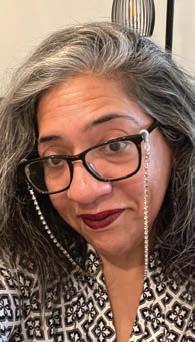
I’ve been holding off on watching new seasons of some of my favorite shows for one rather embarrassing reason: it’s been so long since I last saw them that I feel like I need a rewatch of past episodes to be entirely up to speed.
Honestly, when there’s so much to consume, who has time to go binge through seasons one through X of that show you last saw up to two years ago so you can figure out just where all your favorite characters are? Determining where you want to invest your time is a struggle. Some shows were canceled before I got to season one, leaving me wondering if it is still worth the investment. One and done is where I’ve been leaning to these days, and I’m not the only one, it seems. Per my conversations with leading drama distributors about trends in Europe today, even broadcasters are keen for a good slate of limited-run event pieces they can put their marketing weight behind. But, of course, commissioners immediately explore the potential to bring something back once a show does well. There’s been speculation that Prime Video might try further episodes of Daisy Jones & the Six following the success of that drama. I’m torn; while I loved every second of the ten-parter and remain fully invested in those characters’ lives, it is the perfect encapsulation of a limited series. It’s based on a single book; it ends in a place where I have questions, but none that are keeping me up at night; it tells a complete story. Would a second season be as perfect? I doubt it.
Thankfully, smarter people than I are making those decisions, which are more consequential than ever as everyone figures out how to do more with less. Co-production models are evolving. Producers are chasing every possible source of soft money possible as a way to bring down costs. Everyone is in the midst of a strategy shift when it comes to launch campaigns—one episode a week, two, all ten at once? That last one is less likely these days, with the emphasis on fewer projects that remain in the conversation for longer periods of time versus burning through shows at a rapid pace. I’m binge ing far less than I used to, preferring to savor shows rather than emerging bleary-eyed from some twisty tale—that probably won’t be back for another two years anyway.
We hear from the people who are fronting some of the stories making their way to screens across the globe in this edition: Adrian Dunbar shares his experience on the British crime drama Ridley, Emilia Schüle discusses her turn as Marie Antoinette, and Jane Seymour talks about her journey in Harry Wild Mansha Daswani
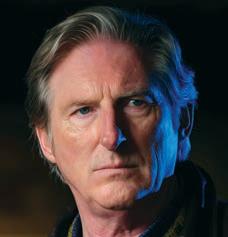
European drama distributors weigh in on the trends at play in the landscape.
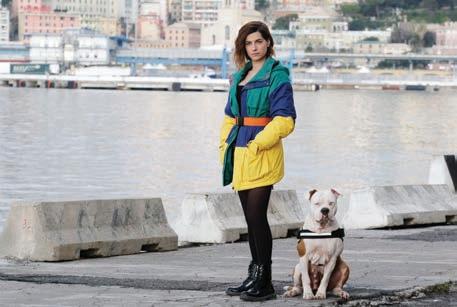
The third edition of the TV Drama Screenings Festival spotlights some of the hottest new and returning scripted properties available today.
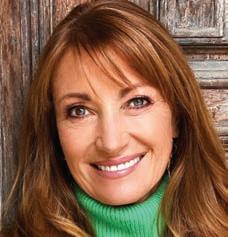

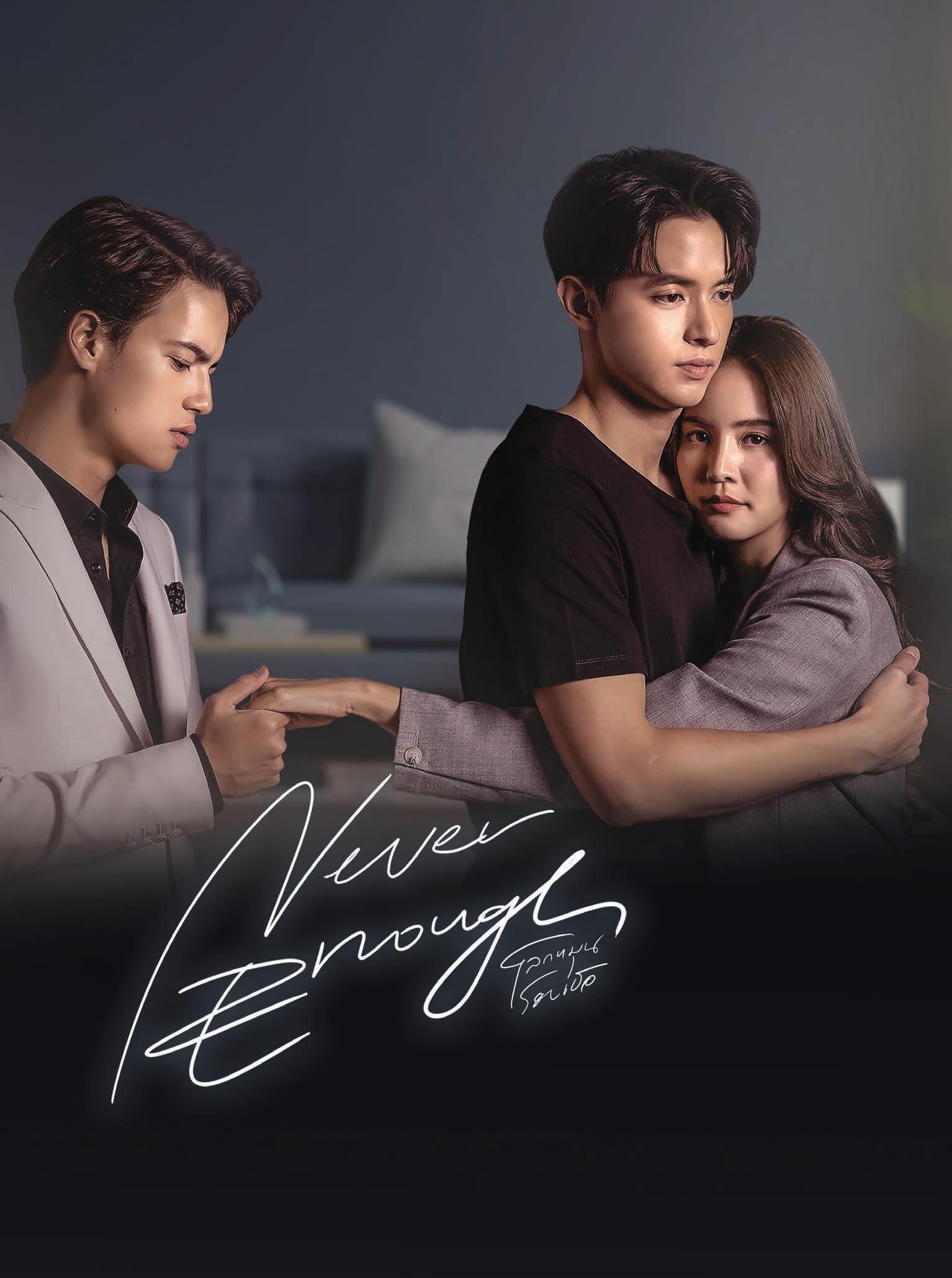
Street Birds / A Little Sunshine / The Father
A brand-new launch for atv this year, Street Birds is about five friends who take care of a baby from the streets and all the obstacles that inspire them to become ruthless adults. “The story is about protecting their loved ones and experiencing life despite its cruelties,” says Müge Akar, atv’s head of sales for Europe, Asia and Africa. “People nowadays expect more realism from their TV screens, and our series satisfy this demand.” A Little Sunshine and The Father launched on atv in the 2022 season. A Little Sunshine is about motherhood and love, while The Father is based on a strong man who struggles between the two most important things in his life: his country and his family. “Their success continues with incredible ratings,” says Akar.

Codex 632 / Chaos / Alice
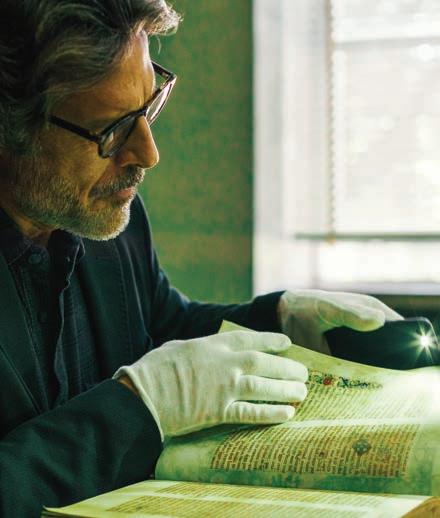
Bavaria Media International is presenting the six-part suspense and adventure series Codex 632, based on the best-selling novel of the same name by José Rodrigues dos Santos. “Stories about secrets and conspiracies around well-known historical figures and events have always attracted big audiences,” says Helge Köhnen, head of content sales. “Codex 632 contains exactly this key element. The main intrigue is built around the world-famous historical figure Christopher Columbus and his origins, and the plot cleverly brings together historical heritage with a detective story.” The company is also presenting the Canadian thriller Chaos, set around a dramatic explosion during a concert by a popular band. Meanwhile, the two-parter Alice, which premiered on German TV last year, uncovers the life and work of 1970s feminist icon Alice Schwarzer.

BEC World produces 25 to 30 Thai dramas per year, with a wide range of genres catering to free-to-air broadcasters and streaming platforms. Among its new highlights is Love Destiny 2 , a sequel to the successful 2018 series Love Destiny that will reveal the secret of the age-old Krishna Kali manuscript. Nobody’s Happy If I’m Not features a dark story of betrayal and revenge, while To the Moon and Back takes a lighthearted comedic approach to underscore the social intolerance toward LGBTQ+ families. The latter was adapted from a Thai novel about a child raised by same-sex parents. “We continue to challenge ourselves to be the best storyteller and compete with content from the region for the rest of the world,” says Surin Krittayaphongphun, president of the TV business at BEC World.

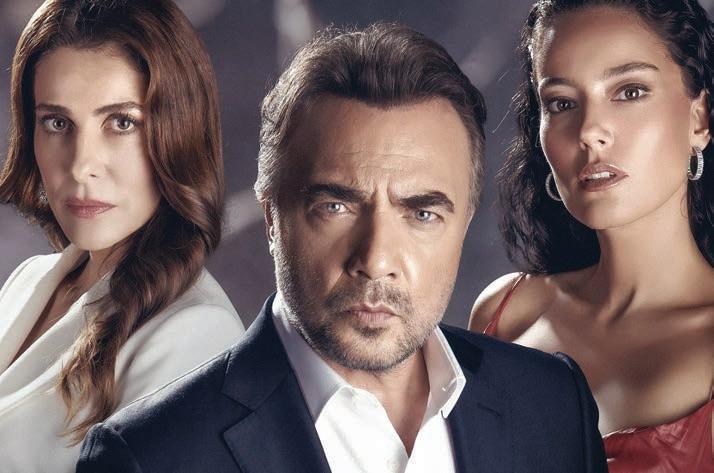
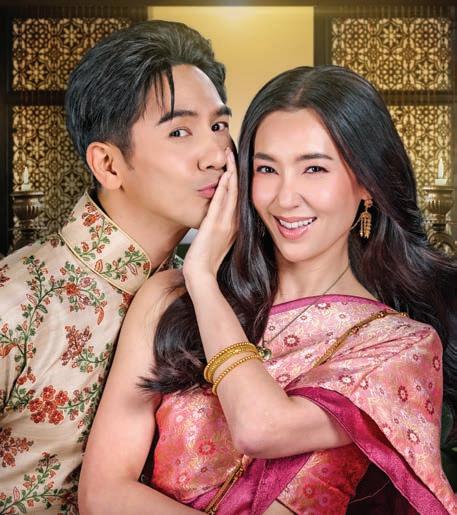
“The reality of our dramas is one of the key factors in their success.”
—Müge Akar
“In addition to sales, we are actively acquiring new content for distribution at all stages of production.”
—Helge Köhnen
“Our dramas have traveled throughout Asia and have a strong fan base.”
—Surin Krittayaphongphun

Adela / Farah / Twisted Lives
Calinos Entertainment is distributing at MIPTV Adela, the Romanian remake of That’s My Life, which has four seasons available. Also in its catalog, Farah, the Turkish adaptation of the Argentinean series La chica que limpia (The Cleaning Lady), follows an Iranian woman who runs away from her country to Istanbul, where she works as a cleaning lady to afford her son’s medical treatment. Through her work, she ends up becoming an accomplice for the mafia. Twisted Lives tells the story of two best friends who become each other’s worst enemies while protecting their own children.
“It is shot in Bodrum, one of the most beautiful coastal towns of Turkey, with a great cast,” says Asli Serim, head of international sales. The Calinos slate also includes Forbidden Fruit, Woman and Our Story


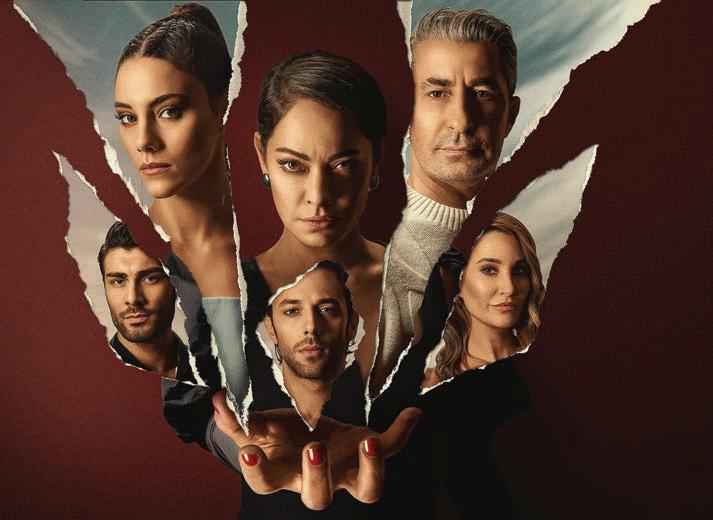

Farewell Letter / That Girl / Three Sisters
On offer from Kanal D International, Farewell Letter sees former lovers cross paths again after 30 years when their grown children meet. Though their children have different plans in life, they choose to walk the path together, without realizing that their parents were once betrothed, until one disappeared just before the marriage. That Girl centers on a young girl who dreams of being a social media influencer to escape her poor life, in which she has to take care of her disabled father and deal with his angry, abusive family. Adapted from İclal Aydın’s novel, Three Sisters tells the story of siblings who had a fairy-tale childhood with a close-knit family and promising futures. They are forced to face the harsh realities of life when past secrets begin to surface.
Part historical drama and part political thriller, the series Bonn is on offer from LEONINE Studios. Bonn features the true untold story of a young woman’s struggle to find her place in a male-dominated society amid the battle between Germany’s separate intelligence agencies formed after WWII. LEONINE Studios also has in its slate the ecothriller The Seed . In the series, two detectives searching for a missing journalist in Norway’s Arctic wastes find their lives on the line when they uncover a conspiracy of global proportions. Another highlight in the catalog is the crime drama Troppo , centered on ex-police detective Ted Conkaffey, who finds himself drawn into the criminal cases of an eccentric private investigator who is also a convicted murderer.
“We continue to widen our catalog with dramas and movies from different countries, in addition to Turkish dramas.”
—Asli SerimThe Seed That Girl Adela

Blanca / Violet Like the Sea / Good Morning, Mom!
The crime drama Blanca, part of the Lux Vide catalog, is the story of a blind profiler who works in the police force as an intern. It features an explosion of color, funky music and irony, according to Barbara Pavone, chief sales and marketing officer. Season two is in production. Violet Like the Sea is a light crime series that follows Viola, a journalist who assists Inspector Demir (Can Yaman) in solving cases thanks to her synesthesia: seeing other people’s feelings through colors. There are two seasons of the family mystery drama Good Morning, Mom!, which Pavone calls “an engaging journey between tears and laughter, past and present,” that is full of mystery. “These titles have global appeal for their themes of inclusion, family values and beautiful Italian settings and epitomize Lux Vide’s broad, family-oriented, multi-genre portfolio,” Pavone adds.
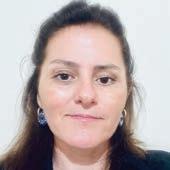
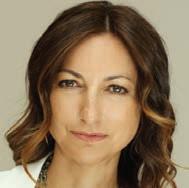
MISTCO has among its lead offerings Bahar , a coproduction with Üs Yapım. In the drama, Bahar witnesses her father’s murder and tries to prove that her stepmother is the culprit. At the same time, she falls in love with someone her stepmother is obsessively attached to. In Secrets of an Angel, a domestic violence victim ends up in the hospital and leaves behind a letter for her lawyer to open after she dies. MISTCO’s slate also features The Patriots. “The age of chaos that started in the world caused all countries to review their security policies,” says Aysegul Tuzun, managing director of MISTCO. “Türkiye creates elite teams that carry out point-and-shoot operations within the scope of special forces in the country and abroad. One of these teams is the Patriots.”

Among ZDF Studios’ drama highlights, The Swarm comes from Emmy Award-winning showrunner Frank Doelger (Game of Thrones). It follows scientists around the world as they frantically try to figure out what is causing strange, aggressive behavior in ocean creatures. “In a very short time, all human life is at stake—and the fate of the entire world population rests in the hands of a small group of scientists,” says Dr. Markus Schäfer, president and CEO. Dear Vivi uncovers the mystery behind the shocking murder of a wife and mother by her husband. When he is taken in by police, their daughter Vivian must fight for custody of her siblings. Also on offer, the reboot of Chicho Ibáñez Serrador’s Historias para no dormir, Stories to Stay Awake, has a second season available.
“
producers produce very high-quality and sustainable dramas every year.”
Stories to Stay Awake
Stories to Stay Awake returns with its second season to offer audiences the best of the thriller genre combined with the great potential and talent of modern cinema.”
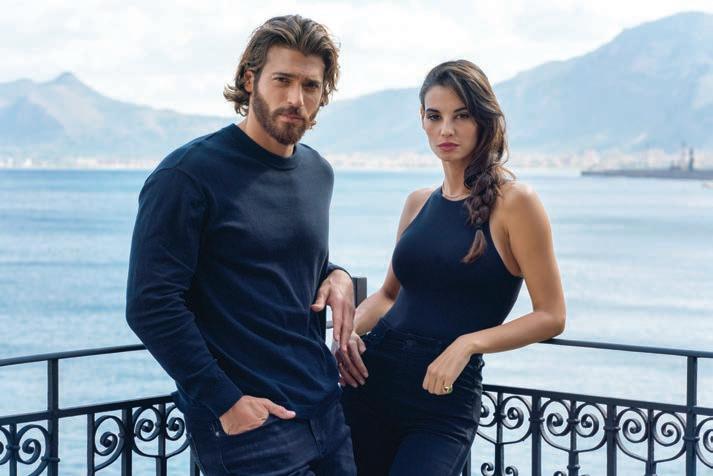


—Dr. Markus Schäfer
“Turkish
—Aysegul Tuzun
“We continue to bring broad, heartwarming family stories with proven international appeal to buyers.”
—Barbara Pavone

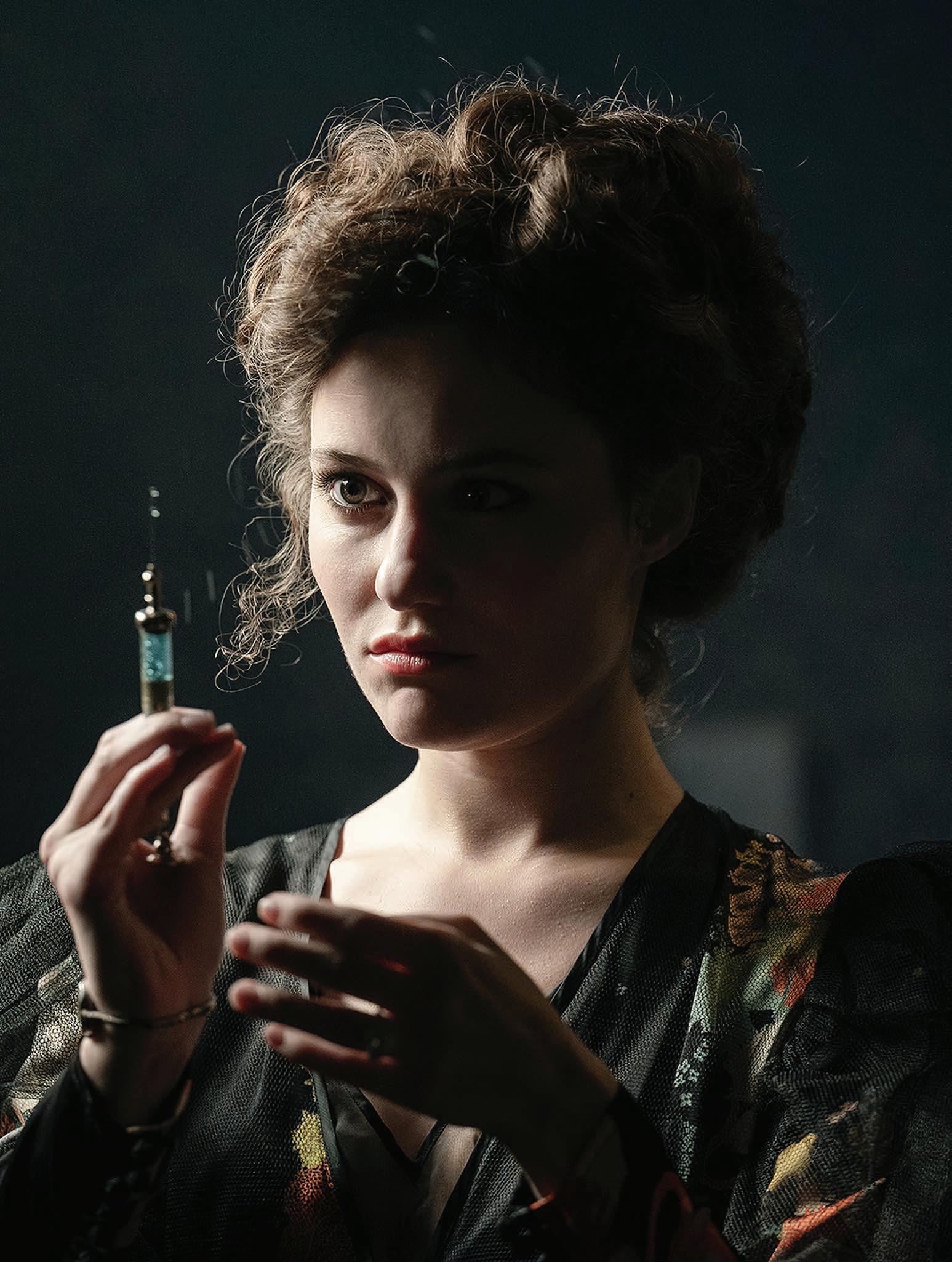
In March, the highly anticipated, big-budget ecothriller The Swarm opened to almost 7 million viewers on German pubcaster ZDF after racking up more than 10 million views on its digital service locally. The s how also scored a 23 percent share on Austrian outlet ORF.
From showrunner Frank Doelger (Game of Thrones), the ambitious eight-parter features a wealth of partners; it is produced by Schwarm TV Productions—itself a joint venture between Intaglio Films and ndF International Production—for ZDF, France Télévisions, Rai Fiction, Viaplay, Hulu Japan, ORF and SRF, in co-production with Bravado Fiction and Beside Productions and co-operation with ATHOS. ZDF Stu dios and Beta Film are jointly handling distribution.
“There is no better deal than when several partners with similar values and production strategies come together and co-produce,” Norbert Himmler, director-general of ZDF, told World Screen last year. “You pay for one or two episodes and receive eight to ten for your program in return! And it is the only way for us to match financially the streamers’ deep pockets in production.”
The streamers’ deep pockets may not be as bottomless as they were a year ago amid a slowdown in the growth of subscribers, but broadcasters are still having to find innovative ways to pool their resources to take on the global giants, especially as inflation drives up the cost of production. The streamers, while scaling back, are still making
sig nificant investments in scripted; per Ampere Analysis, spending on original titles by global streamers will top $26 billion in 2023—a quarter of all commissioning worldwide—with some 90 percent of that going on script ed. And per many operating in Europe’s drama landscape, even the platforms that for a time wanted nothing but global rights are becoming more open to new financing models as they look to meet local content quotas and drive subs in a slightly more cost-efficient manner.
“Drama production is getting more and more expensive everywhere,” observes Béatrice Nouh, head of sales at Spain’s Onza Distribution. “Streamers are trying to maximize revenues and offer more content, so co-productions are a great way for them to face these challenges. Platforms are more open than a few years before to sharing rights and windows to enter projects with higher production values without assuming all the risk. At Onza, we are always trying to push the possibilities of multi-windowing, either in the same territory (for example, a streamer and a free-to-air channel) or between territories.”
Nouh continues, “What is missing in Europe is one big European streamer that would foster European coproduc tions. For now, most of the streamers present throughout Europe are from the U.S. and focus more on local production country by country and not so much on several countries at a time. The main organized strategic attempt to create these kinds of European co-productions is The Alliance with France Télévisions, Rai and ZDF, but for streamers, it is still very [rare] in Europe.”
The team at Bavaria Media International has also seen new flexibility on the part of SVOD operators to second windows and non-exclusive rights sharing. Broadcasters, meanwhile, are becoming slightly more risk-averse given the potential of a looming recession alongside reduced ad revenue forecasts.
“Clients are looking for titles that perfectly fit their slot requirements in terms of format, genre and content,” says Helge Köhnen, head of content sales at Bavaria Media International. “Unless you have a strong and unique show, they tend to minimize the risk by looking for well-proven formats. Also, there has been a trend for relicenses to cut expenses in acquisitions.”
Onza’s Nouh, meanwhile, has seen increased requests from linear clients for “big prime-time event series; the ones that can [bring in big] audiences and thus help them generate ad revenues.”
She elaborates: “There is a trend in prime-time series to reduce the number of episodes to create a short event (one or two nights). Ten years ago, most of the seasons were between 12 and 24 episodes, and now broadcasters are sometimes asking for between three and six episodes. We see that the idea is to get more premium event series than filling a slot.”
Global Screen lands at MIPTV with the new event series DAVOS, made by Contrast Film Zürich and Letterbox Filmproduktion Hamburg. “The cinematically stunning and thrilling six-part show is being co-produced by Amalia Film, Swiss television broadcaster SRF and the German production company ARD Degeto,” says Julia Weber, head of sales and international acquisitions. “The exciting series will feature an outstanding cast led by Dominique Devenport, Jeanette Hain and David Kross. DAVOS finished shooting in March and will be broadcast as a holiday season highlight.”
Whether a one-off or a returning brand, there is a sense in the market today that audiences are seeking slightly lighter fare when it comes to their drama offerings.


“I hear that brands do not want to be associated with topics that are too violent or dark, especially for daytime, so some linear free-to-air clients are asking for lighter content, but still premium enough to attract the audience,” Onza’s Nouh explains.
She adds, “With risks on ad revenues, linear broadcasters need to rely on safer options when they produce something. It’s not the moment for them to try something transgressive.”
Broad appeal is the focus of the lineup from Italy’s Lux Vide, with Barbara Pavone, chief sales and marketing officer, highlighting the company’s slate of “family-oriented, long-running TV series of all kinds of genres—crime drama, light crime, mystery and comedy. We continue to bring broad, heartwarming family stories with proven international appeal to our buyers,” she says.
Fredrik af Malmborg, CEO of Eccho Rights, is of a similar opinion, noting, “There’s an appetite to be a bit safer. In Turkey, it’s the same—we’re going back to the roots of how shows were made some time ago.”
While broadcasters are looking for high-profile event pieces, they need a steady, reliable supply of content that will engender viewer loyalty as they brace for what is expected to be a challenging year. Turkish distributors are ready to fill that demand.
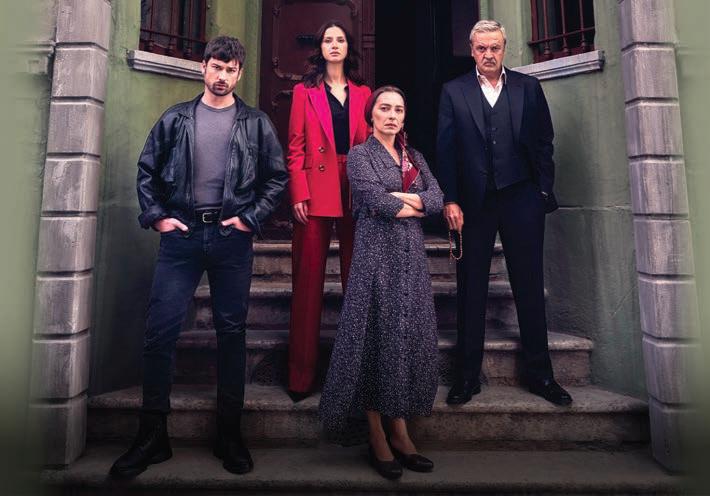
“The appetite for Turkish dramas continues to grow worldwide,” says Asli Serim, head of international sales at Calinos Entertainment. “Turkish scriptwriters [have] started to evolve stories according to daily social media feedback. This flexibility and pace positively affect the global audience and the local ones. And the buyers love this trend.”
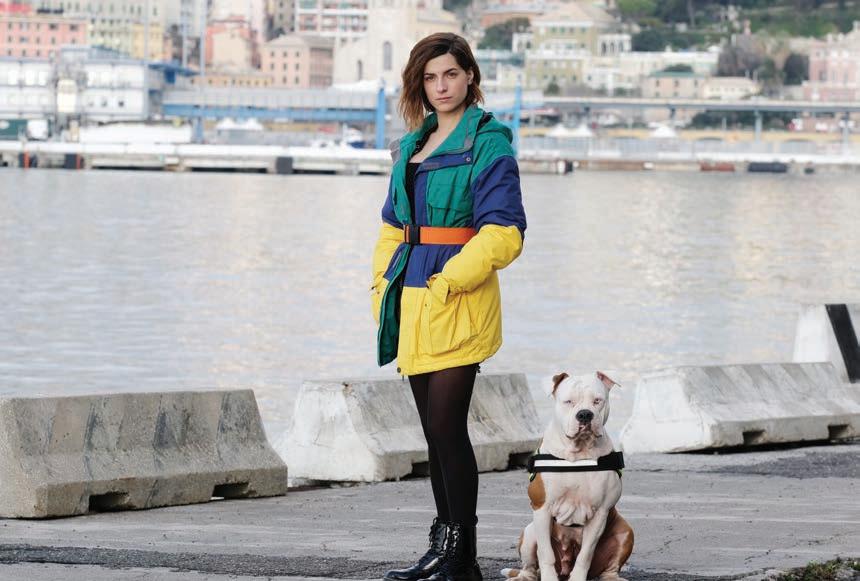
Turkey’s atv arrives in Cannes with a slate of long-running, established hits, reports Müge Akar, head of sales for Europe, Africa and Asia. To appeal to buyers—and audiences— atv is emphasizing that its shows all boast “successful directors and producers, well-known casts and high-quality production [values] with unique stories.”
Aysegul Tuzun, managing director of MISTCO, highlights the “sustainable” nature of Turkish dramas and points to the company’s openness to co-productions as it expands its global footprint. “We aim to create an international title with the contribution of our partners all around the world—so we are quite open to co-production discussions,” Tuzun notes.
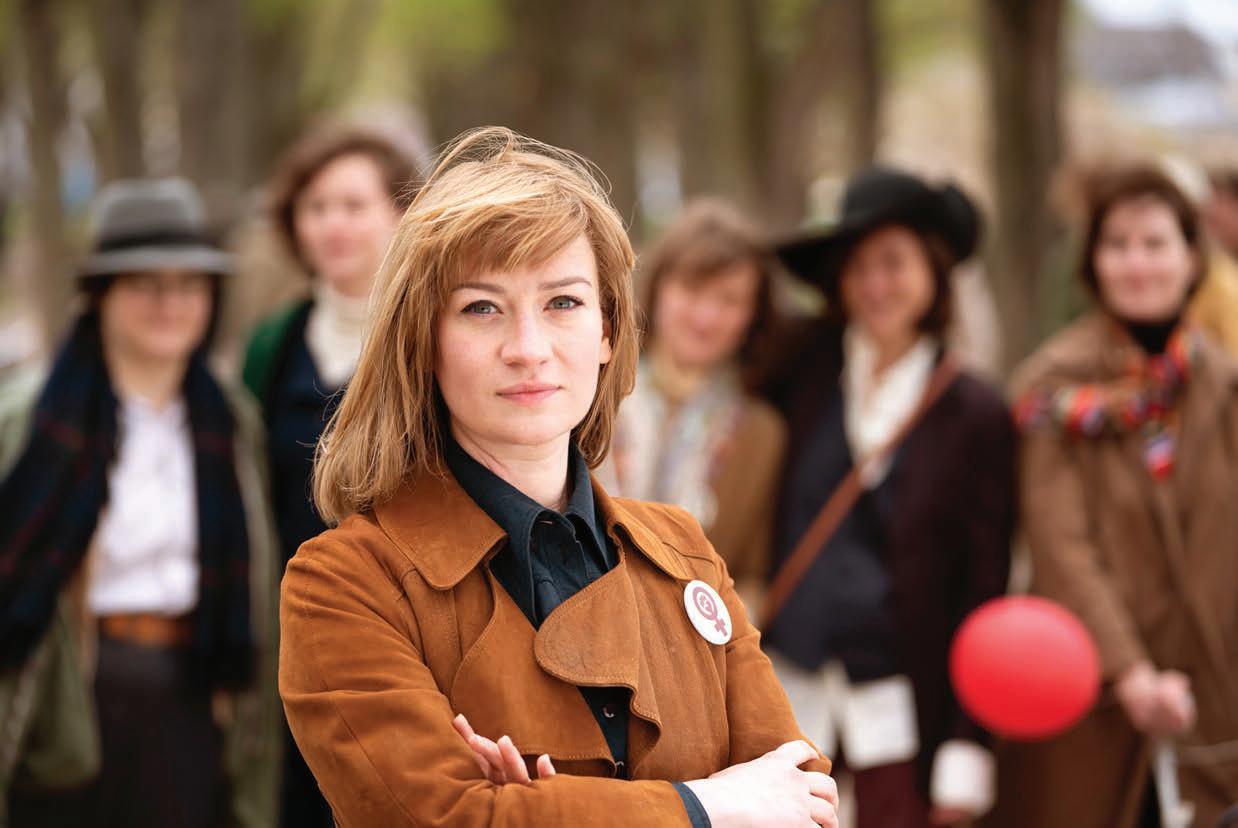
Whatever the origin, crime dramas and known IP remain in demand as buyers and commissioners look for safer bets to stand out in a crowded landscape. ZDF Studios, for example, is showcasing a wealth of suspense and thriller series, including Before We Die, an English-language remake of the beloved Scandinavian series for Channel 4; and two seasons of the Stories to Stay Awake anthology reboot. “Four top Spanish directors—Rodrigo Cortés, Rodrigo Sorogoyen, Paula Ortiz, Paco Plaza—bring Chicho Ibáñez Serrador’s iconic horror series back to life with a modern cinematic edge,” reveals Mirela Nastase, Director Drama.
All3Media International also has an abundance of thrillers to showcase of varying stripes, including Better , which David Swetman, senior VP of content and commercial strategy, describes as a “messy, human, crime-filled story from the award-winning team at Sister, set in the atmospheric Leeds and led by gripping performances from BAFTA-nominated Leila Farzad and Andrew Buchan.” Meanwhile, from Australia, Black Snow is a crime drama meets coming-of-age series from Goalpost Pictures “that
champions unique, distinct voices from the local South Sea Islander community and features outstanding performances from Travis Fimmel and newcomers Talijah Blackman-Corowa and Jemmason Power.”
Indeed, “topics such as diversity, female empowerment and sustainability have gained much higher importance,” reports Köhnen at Bavaria Media International. “Also, the number of youth-related themes has been growing.”
With war ongoing and an abundance of clutter to cut through, the region’s key scripted distributors know that 2023 is set to be a challenging year. Still, the opportunities are clear, especially as a writers’ strike looms in the U.S. During the last one—which ran for 100 days in 2007-08—international content was a blip on the radar for American viewers; today, that situation is vastly different as audiences embrace subtitled content and stories from across the globe.
The third edition of the TV Drama Screenings Festival spotlights some of the hottest new and returning scripted properties available today. Hailing from across the globe, these selections span the breadth of the landscape, from crime and suspense to romance, lighthearted comedy and more.
Fresh off its strong ratings debut, The Swarm leads off ZDF Studios’ highlights in the latest edition of the TV Drama Screenings Festival. “Based on Frank Schätzing’s international bestseller of the same title, The Swarm is an eight-part thriller series from Emmy Award-winning showrunner Frank Doelger ( Game of Thrones ),” notes Mirela Nastase, Director Drama at ZDF Studios. The high-profile international co-production follows a group of scientists investigating strange
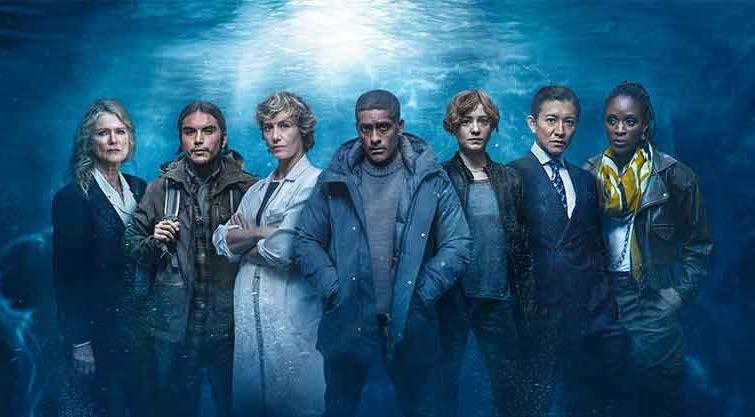 ZDF Studios’ The Swarm
ZDF Studios’ The Swarm
happenings in the ocean. ZDF Studios is also highlighting new installments in the English-language adaptation of Before We Die, which has been a hit for Channel 4, and the Spanish anthology Stories to Stay Awake.
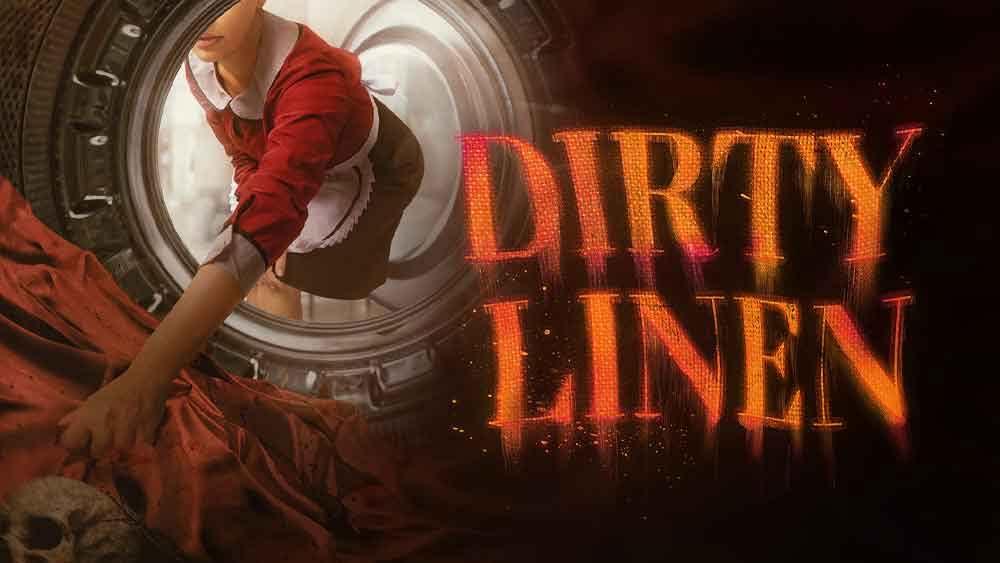
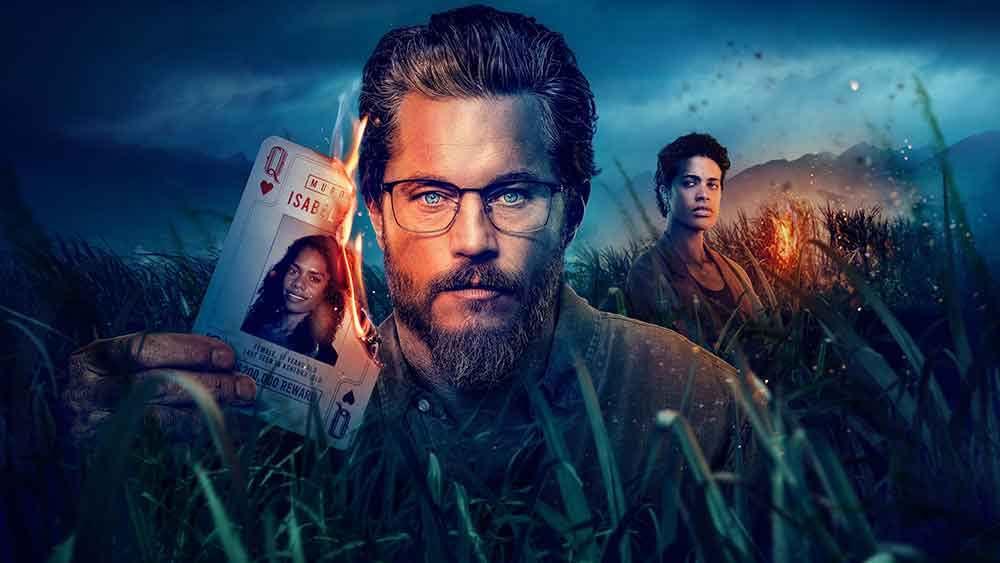

The All3Media International lineup speaks to the diversity of the company’s scripted offering. On the thriller front, there’s Better starring Leila Farzad and Andrew Buchan. David Swetman, senior VP of content and commercial strategy, also highlights Mayflies, which stars Martin Compston and is produced by Synchronicity Films, adapted from Andrew O’Hagan’s best-selling novel, presenting “a powerful look at a male friendship that faces the ultimate test.”
All3Media International is also showcasing the Aus tralian crime drama Black Snow, set in two different time periods as it follows a murder investigation. Meanwhile, the lush period piece The Confessions of Frannie Langton is set in Georgian London and hails from the team at Drama Republic. “Adapted by author Sara Collins from her celebrated novel, this acclaimed series combines a compelling murder mystery with a searing depiction of race, class and oppression,” Swetman notes.
ABS-CBN Corporation’s Dirty LinenFrom the Philippines, ABS-CBN Corporation is touting two new offerings for global buyers. Dirty Linen is a thriller that “tackles poverty and inequality and does not shy away from portraying horrific acts that the powerful and wealthy feel privileged to carry out against ordinary people,” says Pia Bacungan-Laurel, department head for international sales and distribution. “We’re very proud to tell this story together with such fantastic actors, including the first Filipino Volpi Cup winner, John Arcilla, and Golden Globe and BAFTA nominee Dolly de Leon.”
2 Good 2 Be True , meanwhile, is a romance series focused on the love story between Eloy and Ali. “2 Good 2 Be True was one of our most successful projects in 2022,” Bacungan-Laurel says. “It dominated online viewership in the Philippines for 26 straight weeks. With its highly
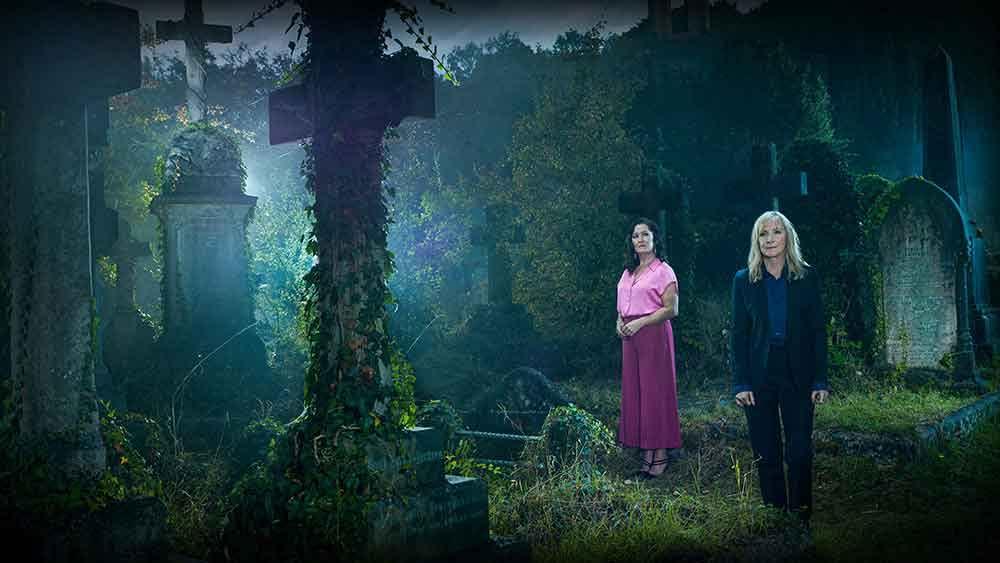
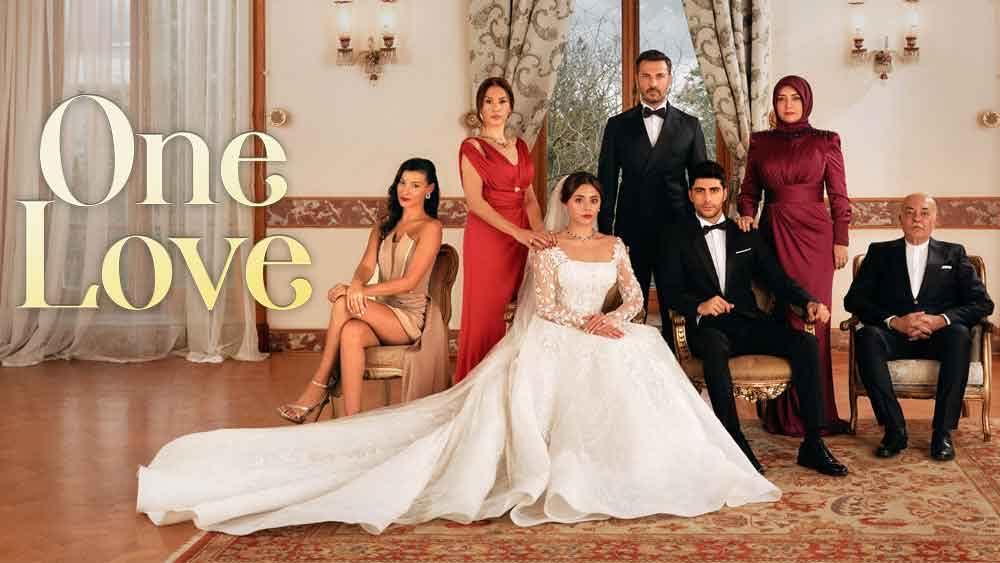
entertaining story, viewers get to enjoy a good mix of romance, drama, comedy and light action.”
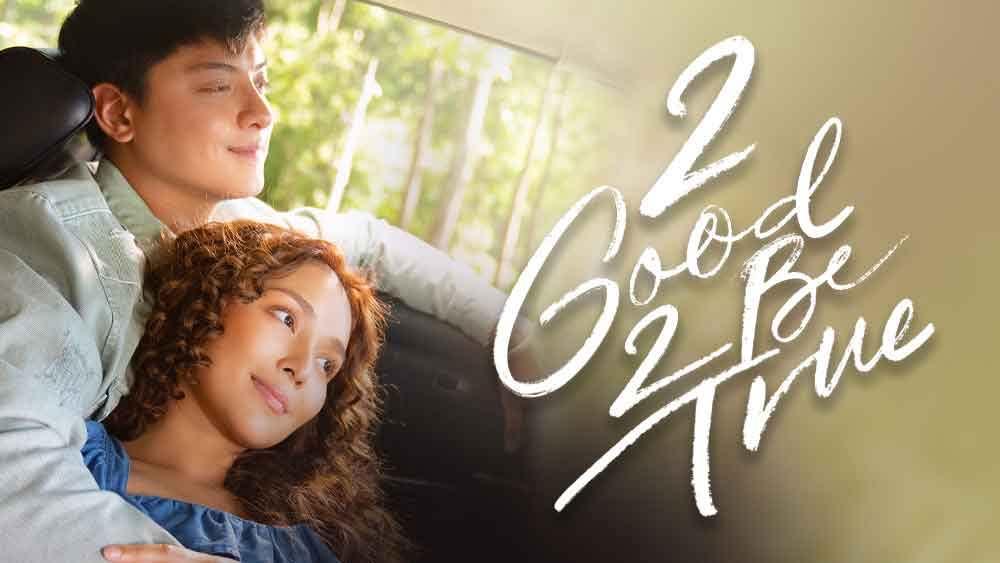
Global Agency is also offering international buyers a slate of successful romance dramas, including One Love , which “tells the captivating story of the idealistic Doga falling hopelessly in love with a charming man from a devout family whose values clash with those of her mother, creating a powerful drama as they seek to overcome their differences and find harmony,” says Izzet Pinto, CEO. Pinto also highlights Vendetta , which “tells the moving story of Dilan and Baran and the marriage they are forced into to end a blood feud, despite the hostility of those around them, igniting a passion that will either blossom into love or bring devastation.”
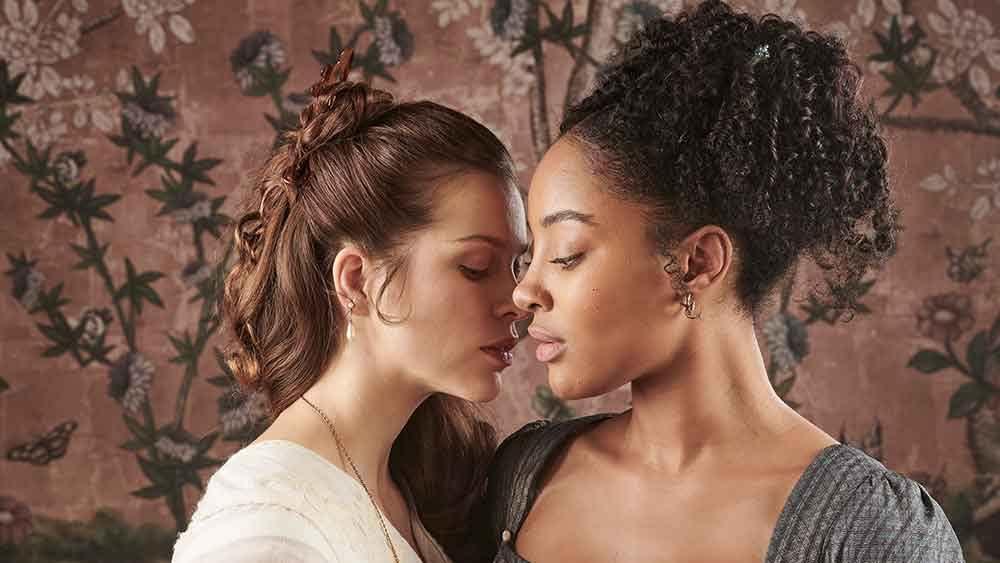
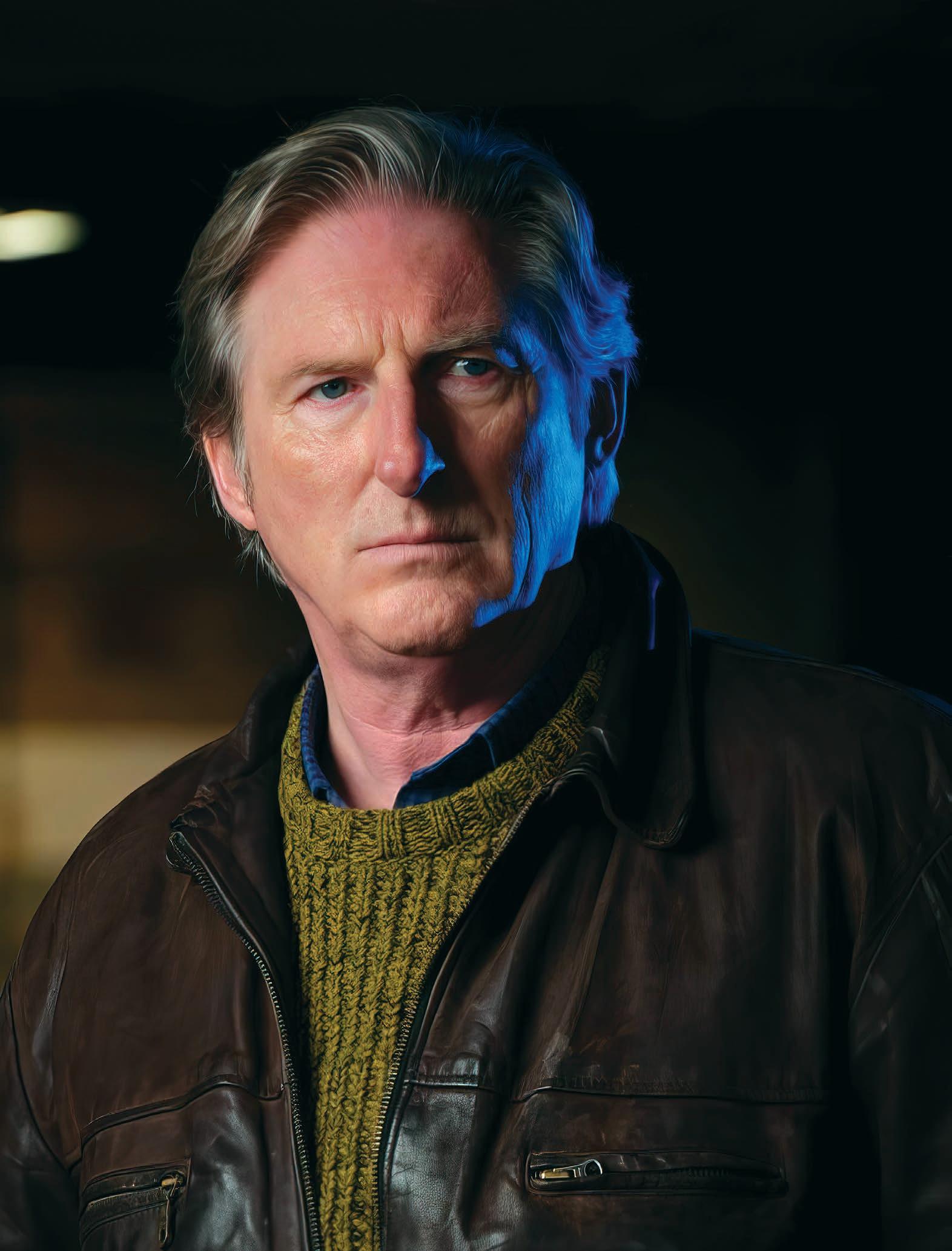
Since the 1980s, Northern Irish actor, producer and director Adrian Dunbar has worked in film, theater and television. Early in his career, he starred in the feature films My Left Foot and The Crying Game, followed by dozens of roles in stage productions and TV series. Most recently, he played a cop called in from retirement in Ridley, for which he is also an associate producer. While portraying detectives is familiar to him, Ridley is different and complex, as Dunbar explains, not only for his penchant for jazz. Dunbar talks about stepping into the role, the quality on display in today’s TV series and the ongoing popularity of detective shows.
TV DRAMA: What appealed to you about the project? It’s different from other things you’ve done, right?
DUNBAR: Yes, it certainly is. What appealed to me, first of all, was that I got some excellent scripts from Paul Matthew Thompson, whom I had known for years. I knew Paul was a really good writer, especially in this genre. And I was working with Jonathan Fisher again, who had been the producer on a series called Blood that I did for All3Media. Ridley was coming from a good place already. Then I started reading the scripts and thought the first episode was really good. I thought the denouement was great. The dynamic between the central characters was interesting. It’s not the normal [setup]. Here is a guy who’s retired and brought back in; therefore, he’s not operating under the same rules as everybody else. He’s a bit more off the wall. But he’s dealing with a lot of very serious stuff that happened in the past. He lost his wife and daughter in a horrible house fire. That is the theme that’s running through all four episodes. And it brilliantly comes together in episode four, where they tie everything up. Ridley was four 90-minute episodes—quite a lot. So, yes, it’s a big piece.
TV DRAMA: How did you step into the role, especially since you had previously played a cop, Superintendent Ted Hastings, in Line of Duty?
DUNBAR: I look at it sometimes from the outside in rather than the inside out. The inside-out stuff looks after itself because you’re saying to yourself, this is his past history. How will that affect his attitude, mood and feelings about the world? And how will he get dragged back into a world that the tragedy came out of? But from the outside in, it’s amazing what happens when you step out of uniform. I knew from just doing a few scenes in Line of Duty where I wasn’t in my cop uniform how transformative that was. I was confident that once I’d get into civvies, once I didn’t have to have a cop haircut, and I didn’t have to lean hard in my Northern Irish accent, as I did in Line of Duty, things would completely change quite rapidly. And that seems to be what has happened. The character is very distinctive, and he’s [outdoors]. My character in Line of Duty was an
By Anna Carugatiinterior character. He was very rarely outside. I’m always on the hoof during this show, which is great. I thought all those elements would allow an audience to let me reinvent myself.
TV DRAMA: And you didn’t need to say, “catching bent coppers,” did you?
DUNBAR: No. [Laughs] He doesn’t do any of that stuff. He’s not a catchphrase guy, that’s for sure.
TV DRAMA: Ridley co-owns a jazz bar. You have musical skills. Did you bring those skills and your passion for music to the show?
DUNBAR: Absolutely. I started reading the scripts and having conversations initially, and I said, We will be filming this in Manchester in the north of England in the winter. It’s pretty bleak. So why don’t we invent a place and give him something to do? My idea was that his retirement would be running this jazz club. He’s a jazz head. So he would be running this jazz club with an old friend called Annie, played by Julie Graham. I do a bit of singing myself. Maybe he gets up and sings the old song. Then I said, I’d also like somewhere warm because everything else is so cold and bleak. Somewhere we can go where it’s a bit more colorful, there’s a bit more warmth and a bit of music. Then I started thinking, well, we’ll need a jazz band. Let me see if there are any people up north. I came across this incredible artist, Richard Hawley. I started listening to Richard’s work. A lot of it is located in that beautiful area of male grief. It’s got that thing about it. He has some amazing songs. At the end of each episode, we do one of Richard’s songs and cut in and out of the story. The songs are not specifically to do with the storyline, but emotionally they’re in the right area. It was a bit of a gamble. Suddenly, at the end of a cop show, the band kicks in, and we sing a song, and you see the denouement play out, but it’s working. People have warmed to it. It hasn’t been an issue. It’s like, oh, that’s what this show is like. That’s been a real triumph for me, in particular, to suggest it. And the guys were brave enough to run with it.
TV DRAMA: To what do you attribute the ongoing popularity of crime series and detectives?

DUNBAR: First and foremost, that’s the access point for all the big stories. Where do you go to find the real human interest? Where do all the moral dilemmas exist? Well, the first person to access them is usually the detective. He’s usually the one putting it all together and going, This happened, and that happened; these are the elements, and this is the person. What’s the motive? We’ve been clever in TV; we get vets or doctors and try to find other means of access. But ultimately, it’s the detective. And, it all started, way back, with Eliot Ness and Damon Runyon and all these guys who were initially given access. Journalists, especially in America, have been given access to the crime scene much quicker than [in the U.K.]. Of course, we also had Arthur Conan Doyle and Sherlock Holmes types, scientifically working things out.
I think we’re interested because we are interested in moral dilemmas. We all have moral dilemmas in our lives and wonder how we would respond to the situation [depicted in the TV show]. That’s what makes shows like Happy Valley, Vera and others in this genre good: the moral dilemma. What’s changed about them is that the leads have become female, and the dilemmas have become more specific. And you can explore [issues] or attitudes that are current. That’s what’s feeding into the storylines, which I think is really good.
TV DRAMA: You have worked in film, theater and television. What are the different creative challenges of each, and do you have a favorite?
DUNBAR: I don’t have a favorite. The challenges are different. TV is where it’s at, at the moment. People used to call it the “medium” of television because it was never rare or well done. But it’s changed since then. When I came to TV in the 1980s, it was pretty slow. It was like walking through molasses sometimes—the dialogue, the mise-en-scène, everything. Now, because you’re watching on big screens and you’ve got catch-up, the production values have gone through the roof. The quality is so much [greater]. Many major stars have crossed into TV, giving it a new standard. When we look back in 50 years at what television was
doing, people may not be looking entirely at what was happening in the movies. I find a lot of the movies pretty light. I don’t think the same rigor is being applied to filmmaking as is being applied to television. You’d think it would be the opposite. But films are pretty light—Triangle of Sadness and The Banshees of Inisherin and so forth. They’re not throwing you about like television can. Now and again, some wonderful films come out, and I like independent films. I’d like to be doing a bit more with independent cinema. But at the moment, TV is where it’s at.
The theater is always going to be close to my heart. But theater is so expensive, and only a certain number of people can see it these days. It’s hard to know where you will go in the theater to make a difference to people. It’s great to see revivals like To Kill a Mockingbird and be reminded of the classics.
But the disciplines for an actor are completely different. You’re using your whole body in the theater, and that’s an entirely different language. TV, you’re bang up front. TV and film are much closer. At the moment, I think TV has the edge on everybody.
TV DRAMA: How have you seen Northern Ireland’s television storytelling evolve in the past two decades—since the end of the Troubles?
DUNBAR: There has been an evolution in the amount of work being done there, the quality of the work and the upskilling of the technicians and facilities we have. And the actors who have come out of there, of course. The BBC and [other] companies were trying to do things in Northern Ireland whereby they were explaining what was going on there to the rest of the world. Most of the storylines were based around somebody from the outside who came in and was trying to understand why everybody was killing one another. You can’t do that without being patronizing. We were being patronized for a long time in terms of our storylines until the local people started [taking] over for themselves. And then that’s difficult because sometimes they don’t want to allow local attitudes onto the screen as local attitudes can be polarizing. So, it was difficult, but there are many more interesting things politically coming out of there.
Made by West Road

Emilia Schüle has performed since she was a young girl, first as a dancer, then as an actor. Born in Russia but brought to Germany by her parents as an infant, Schüle has starred in leading and supporting roles in more than 55 German films and TV shows. International audiences had the opportunity to see her in the series Berlin Station and Treadstone. She currently plays the title role in Marie Antoinette, the TV series that offers a modern take—including the misogyny and manipulation of the court of Versailles—on the Austrian princess who became the last queen of France, wife of Louis XVI.
TV DRAMA: How did you prepare for the role of Marie Antoinette?
SCHÜLE: There is a lot of information about her, but also a lot of prejudice toward her. My preparation was very broad. I first had to relearn my accent. Before the show, I was speaking American English. I had never spoken British English before, so I had a lot of voice coaching. Then I kept flying in and out of Paris and had millions of wig and costume fittings. That was very good prep because the French don’t speak English, and I didn’t speak French. So it was a very Marie Antoinette experience, coming to this weird new world and feeling like an alien. French people are ashamed that they don’t speak English, so they come off rude, but they’re just shy and embarrassed that they’re not fluent.
Then we visited Versailles. There’s a historian who has been working there for some 30 years. He showed us all the inaccessible parts of the chateau, and we got a sense of what life must have been like there. Then I worked with acting coaches, read tons of books and sat down with [creator and writer] Deborah Davis. I told her how many books I had read, and she got really angry because I’d read Stefan Zweig’s book about Marie Antoinette. She said, “Oh, my God, when I read that book, I wanted to throw it against the wall!” Stefan Zweig didn’t think that Marie Antoinette was a very smart woman. The book’s title is Marie Antoinette: The Portrait of an Average Woman. This was when I understood that I had to make my own sense of her and use the work I’d done in my prep, trust the scripts, let go and create my own Marie Antoinette.
TV DRAMA: How did you connect to a woman who lived in such different circumstances?
SCHÜLE: It always comes down to the trauma people experience or what they long for or are struggling with. Marie Antoinette was, after all, a lonely woman. She was looking for a role in life as a woman, wife, mother, queen and rebel. She wanted to be all those things. Life at the court was making it difficult for her. There’s this prejudice about her that she’s all about fashion, beautiful dresses and partying. She was 14 when she left her country, when her mom sent her away. She
By Anna Carugatiwould never see her mom again in her own country. She was married off to a guy [Louis XVI of France] she had never met. Her only job in life was to produce an heir. Her existence was reduced to this. And her husband wouldn’t even sleep with her for seven years. [Upon learning] this is when I understood why she threw herself into partying and beautiful dresses. I would have done the same because she was trying to fill this void, this emptiness and unhappiness. I connected with her because I saw where [her behavior] came from.
TV DRAMA: You mentioned Deborah Davis. She offers a different take on Marie Antoinette’s life. What do you hope the audience will take away?
SCHÜLE: I’m sure the audience will empathize with Marie Antoinette and understand that her life was not what we thought it was. I think people will understand that she was living in a hostile environment where people hated her for being Austrian and for being different. There were always forces working against her and trying to get rid of her. Our show is not about her great addiction to dresses and all this stuff. Of course, the dresses get more beautiful. In episode four, there’s one very beautiful dress, and we give it a moment. But other than that, we don’t focus on that. It’s a family drama, it’s very intimate, and you get a sense of how much she was struggling.
TV DRAMA: Did makeup and wardrobe require a lot of prep before going on set?
SCHÜLE: Yes. They tried to go as fast as they could because no one wants your lead to be in prep for three hours before you start filming—each day over five months. That’s just unbearable. So they were trying to be fast. But it was about two-and-a-half hours every day. Then when we would wrap toward the end of the day, it was again an hour to get everything off. But you get used to it. And I started to enjoy the prep time. I had 96 filming days, so I always had stuff to prep. And I feel like I had some of my best ideas in the makeup chair.
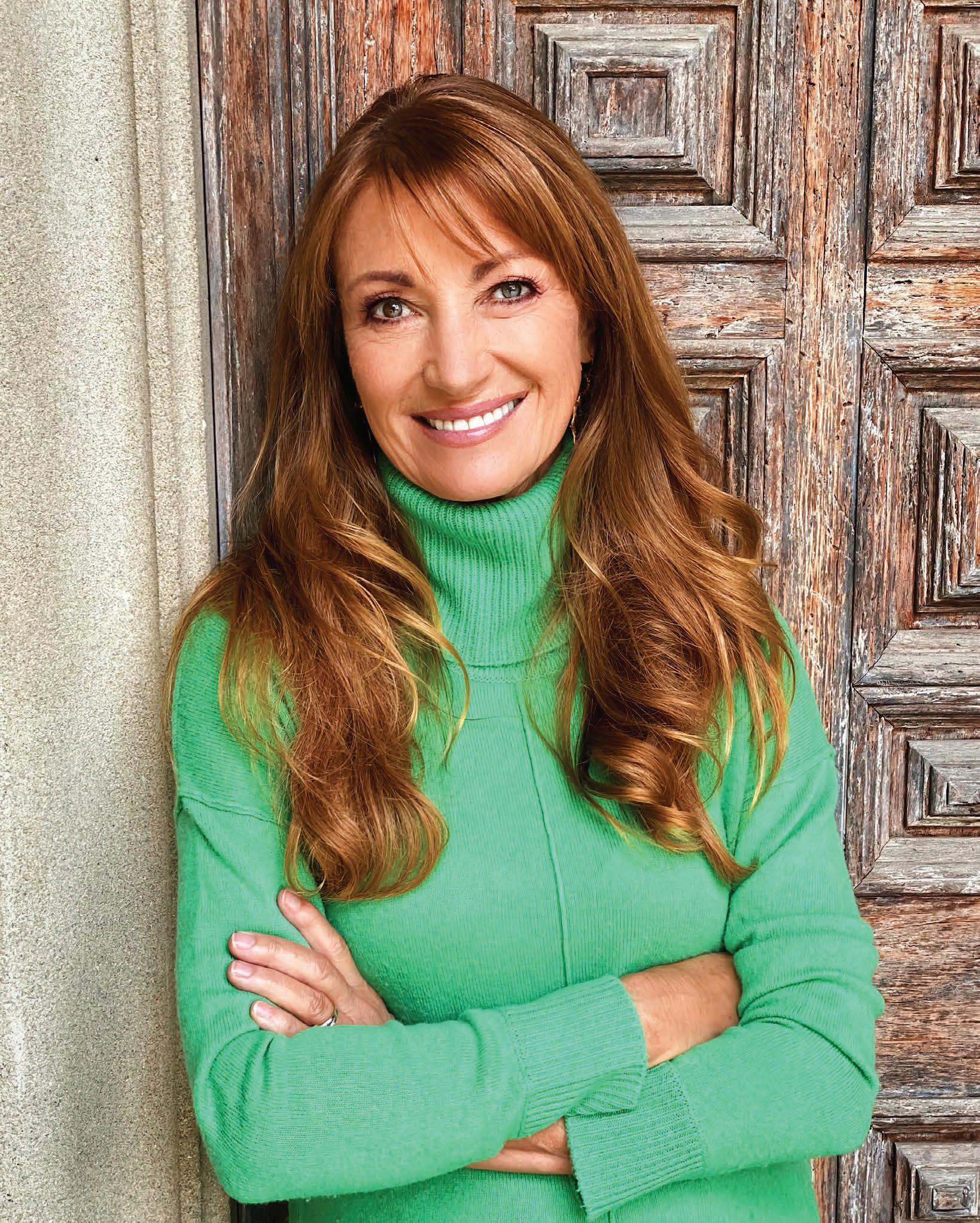
Jane Seymour came to the attention of international audiences in her role as a Bond girl in Live and Let Die. She continued starring in movies while branching into theater and television, earning critical acclaim, including Emmy and Golden Globe awards. She was a role model to girls and young women, portraying a fearless, daring doctor in Dr. Quinn, Medicine Woman. Today, she is a role model for her generation of women in the mystery series Harry Wild. She plays an assertive, determined, straight-talking retired English professor who uses her knowledge of literature to solve crimes. Seymour talks to TV Drama about Harry, characters that appeal to her, and how she always finds time for her artistic passions and her nonprofit, the Open Hearts Foundation.
TV DRAMA: How did Harry Wild come about?
SEYMOUR: They sent me the script and asked me if I wanted to meet the creator, Dave Logan, which I did in London. Harry Wild was a show I’d never seen before—[with] a character close to my age who is intelligent, irreverent, independent; she ticks many boxes that many women would like to be. It was humorous but, at the same time, grounded in humanity. It’s intelligent because it refers to books and information you might not know and are now intrigued by. It doesn’t take itself too seriously.
I love the relationship between my sidekick [Fergus, played by Rohan Nedd] and me because usually [the audience would wonder if it’s a romantic relationship], and instead, here is a pure kind of love and appreciation between two people who come from such different worlds—they usually would have never met. They both enhance one another’s lives. Then there’s the crime [element] that is very different. And I love playing her. We’re doing series two and three right now, backto-back, 12 episodes, and it’s even better. The character gets more fun. We’ve got amazing backstories going on with some of the other characters.
TV DRAMA: You’re also an executive producer on the series. What does that entail?
SEYMOUR: When we first started, it was a choice of who’s directing, what we thought about the scripts and all of that. But because I’m working such ridiculous hours and am in
By Anna Carugatievery scene pretty much, I’m not an admin person. I’m most useful on the set. I’m the one who sets the pace. All the actors hang out together. We don’t sit in separate dressing rooms. We rehearse together. We play together. We have fun together. We get to know each other. So by the time we come on set, the director knows we’re ready. Rather famously, we’ve been told it’s the happiest set in Ireland! Everybody wants to be on our show. I think it’s because I like working with people where all the egos are left behind, and everyone’s abilities and talents come together. We realize that we’re in it together and nothing’s ever perfect. It’s a team effort.
TV DRAMA: You’ve played dramatic and comedic roles. Do you have a preference? Is one more challenging than the other?
SEYMOUR: The most challenging thing is when I’m given material that isn’t good. The trick is to get great material. I feel as comfortable in drama as I do in comedy. So, doing something like Harry is perfect because it combines all of the above. I love doing out-and-out comedy. But to do good comedy these days, the style has to be more real than real. It’s not set-up, set-up, joke, laugh. No, that’s gone. What makes it funny is that it is deeply entrenched in something dramatic and real.
TV DRAMA: What do you look for in a role?
SEYMOUR: When I first came to America, they told me that if I could lose my English accent, I’d never stop working here.
When I arrived, I couldn’t even get a work permit. My agent fired me from England, saying I had made the biggest mistake of my life. So, many of those early credits were me proving I could play Americans from all over America, and I could play anything because I come from England, where you play everything. And very early on, they pigeonholed me as a Bond girl, which is a curse and a blessing at the same time, because it presupposes that you have looks, but you can’t act. I broke the mold by going back into the theater and doing all the classics. And people said, she’s a failure; she’s going to the theater for £50 a week. No, I’m playing Lady Macbeth and doing Henrik Ibsen’s A Doll’s House. I’m playing catch-up in my craft.
If I look at my career, honestly, I’ve forgotten half the stuff I’ve done! My favorites have always been playing biographies. I loved playing Marie Antoinette in The French Revolution. I did that in two languages. I loved playing Wallis Simpson, and, of course, Maria Callas was incredible. I’ve always been a character actor. When I did Amadeus on Broadway, [director] Peter Hall said he had me because I was a dangerous actress. What does that mean? He said, Oh, you never make normal choices. You come up with very different ways of doing it that make it interesting.
I bury myself in material that I really like. If I can find some good material, I go full-on and do my best. Recently, in B Positive, executive produced by Chuck Lorre, I played an 85-year-old woman, Bette, who thinks she’s a 20-yearold rock chick and is a sexual predator in an old people’s home. That was hilarious. Brilliantly written. The Kominsky Method is brilliantly written. What a great, great role that was! Sometimes a very small role like that becomes something you’re remembered for. The speech at Norman’s [played by Alan Arkin] funeral was magical. Wedding Crashers, what a gift that was. And then a movie you probably haven’t seen called Ruby’s Choice, which I’m very proud of, and I play a woman with dementia who has a very special relationship with a grandchild. I love what I do. If I think [a project] is good, there are good people attached to it, and I think I have something to offer, whether it’s a small or large role, I do it.
TV DRAMA: You were a role model as Dr. Quinn. It wasn’t usual to see a woman who thought she could do anything a man could do and do it with grace. And now Harry Wild. She’s vibrant, determined and brilliant. And she has a mouth, I have to say!
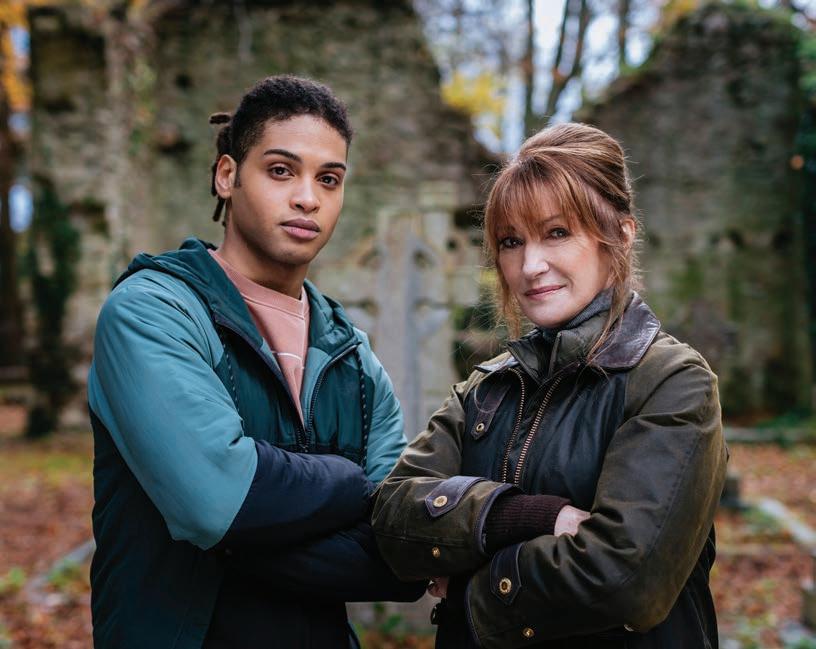
SEYMOUR: A mouth and a taste for red wine! Harry Wild is very much an independent woman who’s smart but also learns; she is compassionate but not overly soppy. She’s very sexy and sexually aroused but has never been married. If she sees what she wants, she enjoys it and then moves on. Like some men we know, right? Harry is still very feminine, but she doesn’t have to be in lace and frilly feminine [clothes]. You made a point about Dr. Quinn being a role model. Harry Wild has become a role model for my generation now—for many women who gave up and said, well, I did the marriage, and then he ran off. I did the kids, and they’ve gone off. I’m lost as to who I am or what I’m doing, and I realize I didn’t do anything with my life. Or they were intellectuals, and they never had children. It’s about being a whole woman and not being afraid to be it. Harry is around murderers and dangerous people with a stun gun—quite useless! But she uses her wit, intellect and snarkiness to win cases. I love that. I’m hearing from a lot of women and men. Men love this show, too, by the way. And it crosses generations. My son is the know-it-all detective who doesn’t know it all. He’s got a wife who has programmed their child to be the perfect child. She doesn’t know it all. Fergus’s family are alcoholics. And then there’s my granddaughter, whom I now have a relationship with on the show. That’s fun because she’s also getting in on the act. So it’s quite a young show. But whereas in most shows, I would just be the grandmother, this is my show, and there are two other generations. I love that because Harry’s life is a three-generational, day-to-day life on the show. And in real life, I’m very close with my grandchildren and my children. I love their friends and doing what they love to do. I haven’t put my feet up and just said, hey, I’m going to try to play bad golf. I’m perfectly capable of bad golf, and I enjoy it. But I don’t need to do that.
TV DRAMA: I recently read an article that said the key to remaining mentally young as one ages is to be with younger generations as much as possible.
SEYMOUR: I produced the movie I’ll Be Me about Glen Campbell and then played a woman with [dementia] in Ruby’s Choice. I realized I want to challenge myself now. I went back into the theater. I did The Vortex on stage in Singapore. I feel I’m in my prime now. I know that sounds ridiculous, but I don’t feel like some people I know who are doing what they can to look younger. I appreciate every moment that I have. I’ve lost so many friends already, and so many are ailing. I know it’s my time next, too.
TV DRAMA: What other projects are you working on?
SEYMOUR: I always have projects waiting in the wings for when there is time for them. I’m doing a voiceover for a very important filmmaker. It hasn’t been announced yet, so I can’t tell you, but I’m very proud of it. I’m doing that while doing Harry Wild. I’m an artist, so I’m receiving an award at the Plein Air Convention & Expo for my work in art. I’ve got art shows and monumental sculptures going up. I design scarves, fabrics and jewelry. I have a major nonprofit called the Open Hearts Foundation that I’m proud of.



